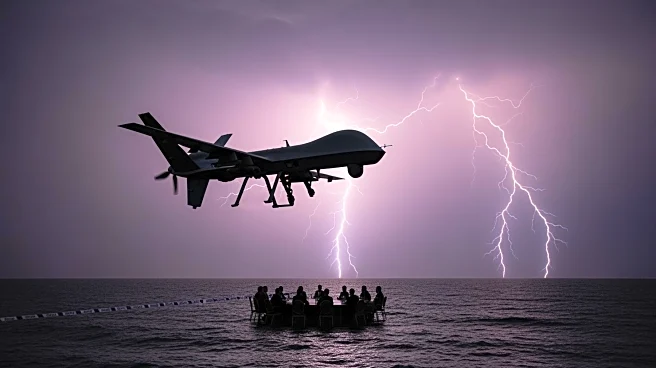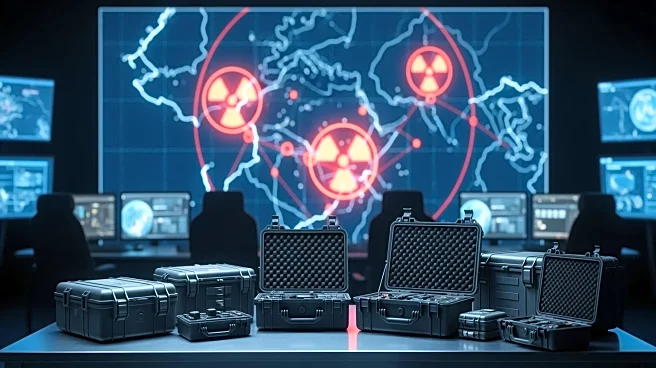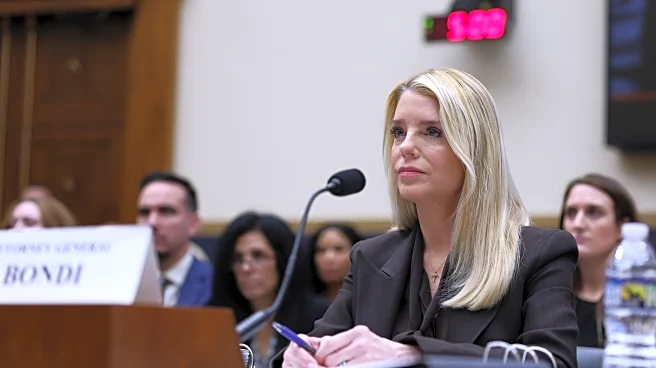What's Happening?
President Trump is facing legal scrutiny over military strikes on alleged Latin American drug boats, as the 60-day window for such actions under the War Powers Resolution has expired. The Pentagon reported that the first strike occurred on September 2,
and Congress was notified on September 4, making November 3 the 61st day. The White House argues that these actions do not constitute 'hostilities' under the resolution, thus exempting them from the time limit. This interpretation has sparked debate, as the administration has not provided evidence to support its claims about the boats and their passengers.
Why It's Important?
This situation underscores the ongoing tension between the executive branch and Congress over military authority and the interpretation of the War Powers Resolution. The administration's stance could have far-reaching implications for U.S. military operations, potentially allowing for extended military actions without congressional approval. This could lead to increased executive power in military decisions, affecting U.S. foreign policy and international relations. The case also raises concerns about transparency and accountability in military operations, as well as the potential for future conflicts with Congress over military engagements.
What's Next?
If Congress does not challenge the White House's interpretation, it could set a precedent for future military actions. Legal experts and lawmakers may push for legislative measures to clarify the scope of the War Powers Resolution and ensure congressional oversight. The situation may also prompt discussions on the balance of power between the executive and legislative branches in military matters. Additionally, the administration's approach could influence U.S. relations with Latin American countries and impact ongoing efforts to combat drug trafficking in the region.

















